Search Results for: Whales
Skip to resultsCan’t find what you’re looking for? Visit our FAQ page.
1,418 results for: Whales
-
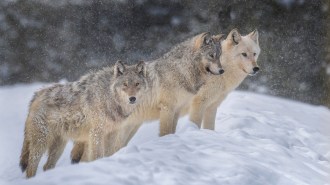 Life
LifeA parasite makes wolves more likely to become pack leaders
In Yellowstone National Park, gray wolves infected with Toxoplasma gondii make riskier decisions, making them more likely to split off from the pack.
By Jake Buehler -
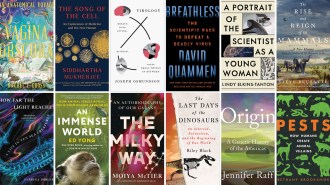 Science & Society
Science & SocietyThese are our favorite science books of 2022
Books about dinosaurs, the Milky Way and the coronavirus are among the Science News staff’s picks for must-read books of the year.
-
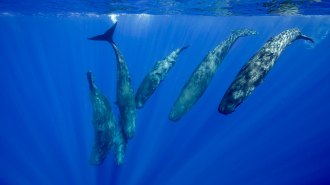 Animals
Animals‘Wonderful nets’ of blood vessels protect dolphin and whale brains during dives
Complex networks of blood vessels called retia mirabilia that are associated with cetaceans’ brains and spines have long been a mystery.
-
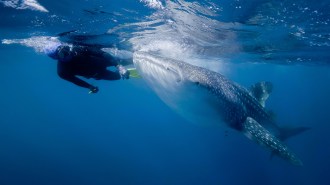 Animals
AnimalsWhale sharks may be the world’s largest omnivores
An analysis of the sharks’ skin shows that the animals eat and digest algae.
By Freda Kreier -
 Anthropology
AnthropologyTina Lasisi wants to untangle the evolution of human hair
Tina Lasisi is pioneering studies of human variation in an ethical and scientifically sound way.
By Aina Abell -
 Paleontology
PaleontologyLiving fast may have helped mammals like ‘ManBearPig’ dominate
Staying in the womb for a while but being born ready to rock may have helped post-dinosaur mammals take over the planet.
-
 Paleontology
PaleontologyMegatooth sharks may have been higher on the food chain than any ocean animal ever
Some megalodons and their ancestors were the ultimate apex predators, outeating all known marine animals, researchers report.
By Asa Stahl -
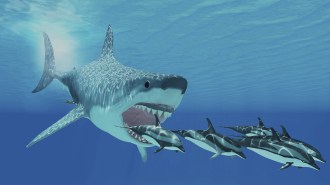 Paleontology
PaleontologyGreat white sharks may have helped drive megalodons to extinction
Analyzing zinc levels in shark teeth hints that megalodons and great whites competed with each other for food.
-

A new Science News for the young people in your life
Editor in chief Nancy Shute introduces Science News Explores, our new print magazine for young people.
By Nancy Shute -

50 years ago, scientists thought a desert shrub might help save endangered whales
Fifty years ago, scientists sought a sustainable alternative to prized oil from endangered sperm whales.
-
 Animals
AnimalsGory footage confirms orca pods can kill adult blue whales
For the first time, three recorded events show that orcas do hunt and eat blue whales using coordinated attacks that have worked on other large whales.
By Anna Gibbs -
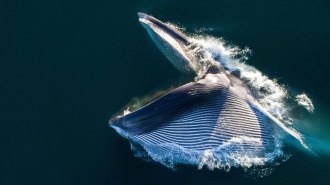 Animals
AnimalsA ‘trapdoor’ made of muscle and fat helps fin whales eat without choking
An “oral plug” may explain how lunge-feeding fin whales don’t choke and drown as they fill their mouths with prey and water while eating.